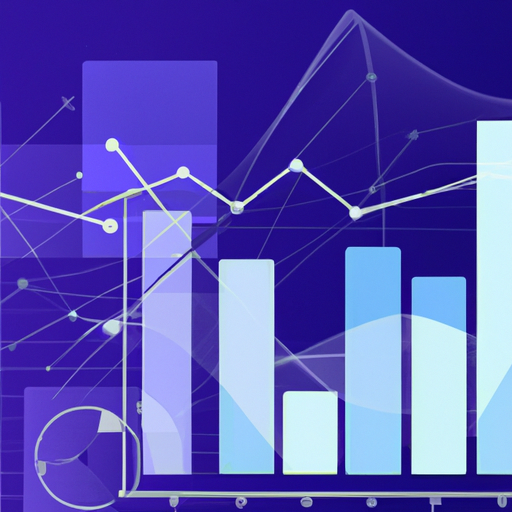Market Research Analysis Tools
You’re looking to gain insights into your target market, but how do you sift through the overwhelming amount of data available? Enter market research analysis tools. These powerful tools help you make sense of market trends, customer preferences, and competitor strategies. With their advanced analytics and customizable dashboards, these tools empower you to make informed decisions and stay ahead of the game. In this article, we’ll explore the various market research analysis tools available and how they can revolutionize your business.

Table of Contents
Market Research Analysis Tools
Market research analysis tools are software applications or platforms that help businesses analyze and interpret market data to gain valuable insights. These tools play a crucial role in the decision-making process by providing businesses with accurate and up-to-date information about their target market, competitors, and consumer behavior. By using market research analysis tools, companies can make data-driven decisions and develop effective marketing strategies that lead to better business outcomes.
Definition of Market Research Analysis Tools
Market research analysis tools encompass a wide range of software applications and platforms that facilitate the collection, organization, and analysis of market research data. These tools can include survey software, data visualization tools, demographic analysis software, sentiment analysis tools, and many others. The primary purpose of these tools is to help businesses transform raw market data into meaningful insights that drive decision-making.

Importance of Market Research Analysis Tools
Market research analysis tools are essential for businesses for several reasons. First and foremost, these tools enable companies to understand their target market and consumer behavior better. By analyzing market data, businesses can identify trends, preferences, and purchase patterns that provide valuable insights into consumer needs and wants.
Secondly, market research analysis tools allow companies to stay ahead of their competition. By monitoring competitor data and analyzing market trends, businesses can identify areas of opportunity and potential threats. This competitive advantage allows companies to make informed decisions regarding product development, pricing, marketing strategies, and more.
Furthermore, market research analysis tools help businesses evaluate the success of their marketing campaigns and initiatives. By measuring the effectiveness of marketing efforts, companies can make data-driven decisions about future strategies and optimize their marketing spend.
Lastly, these tools assist businesses in identifying untapped market segments and new market opportunities. By analyzing market data, businesses can uncover niches or customer segments that have been overlooked. This information allows companies to tailor their products, services, and marketing efforts to meet the specific needs of these segments, leading to increased customer satisfaction and loyalty.
Types of Market Research Analysis Tools
Market research analysis tools can be categorized into several types based on their functionalities and purposes. Some commonly used market research analysis tools include:
Survey Software
Survey software enables businesses to create and distribute surveys to gather feedback and opinions from customers or target audiences. These tools provide features such as questionnaires, response tracking, and data visualization, making it easy to collect and analyze survey data.
Data Visualization Tools
Data visualization tools help businesses transform raw data into visually appealing and easy-to-understand charts, graphs, and infographics. These tools provide a visual representation of complex data sets, allowing businesses to identify patterns, trends, and relationships quickly.
Social Media Analytics Tools
Social media analytics tools help businesses analyze and monitor social media platforms for mentions, sentiment, and customer conversations. These tools provide valuable insights into brand perception, customer satisfaction, and emerging trends in real-time.
Competitive Analysis Tools
Competitive analysis tools help businesses track and analyze their competitors’ strategies, products, pricing, and market share. These tools provide a comprehensive view of the competitive landscape, enabling businesses to identify opportunities for differentiation and improvement.
Statistical Analysis Software
Statistical analysis software allows businesses to analyze quantitative market data using statistical methods. These tools help businesses identify correlations, patterns, and statistical significance within data sets, providing insights into consumer preferences and market trends.
Text Analytics Tools
Text analytics tools analyze unstructured textual data such as customer reviews, feedback, and social media comments. These tools use natural language processing techniques to extract valuable insights from text, such as sentiment analysis and topic modeling.

Benefits of Using Market Research Analysis Tools
Using market research analysis tools offers several benefits to businesses:
Timely and Accurate Insights
Market research analysis tools enable businesses to gather, analyze, and interpret market data rapidly and accurately. These tools automate data collection processes, saving time and effort and ensuring the accuracy of results. By accessing timely and accurate insights, businesses can make informed decisions quickly and stay ahead in the market.
Cost and Resource Efficiency
By leveraging market research analysis tools, businesses can reduce the costs and resources required for traditional market research methods. These tools automate data collection and analysis, eliminating the need for manual data entry and analysis. This leads to cost savings and allows businesses to reallocate resources to other critical areas.
Enhanced Decision-Making
Market research analysis tools provide businesses with valuable insights and intelligence that drive informed decision-making. By analyzing market trends, competitor strategies, and consumer behavior, businesses can make data-driven decisions that have a higher chance of success. This reduces the risk of making decisions based on assumptions or incomplete information.
Improved Marketing Strategies
Market research analysis tools provide businesses with a deeper understanding of their target market, allowing them to develop more effective marketing strategies. By analyzing consumer preferences, purchase behavior, and market trends, businesses can tailor their messages, promotions, and product offerings to meet customer needs more accurately. This leads to more successful marketing campaigns and higher customer engagement.
Increased Competitive Advantage
By using market research analysis tools, businesses gain a competitive advantage by staying ahead of their competitors. These tools enable companies to monitor industry trends, competitor strategies, and consumer preferences, allowing them to identify and respond to market changes quickly. This competitive advantage helps businesses differentiate themselves and develop strategies that capitalize on emerging opportunities.
Better Customer Insights
Market research analysis tools enable businesses to gain a deeper understanding of their customers, leading to improved customer satisfaction and loyalty. By analyzing customer feedback, sentiment, and behavior, businesses can identify pain points, preferences, and areas for improvement. This understanding allows companies to deliver better products and services that meet customer expectations.
Factors to Consider When Choosing Market Research Analysis Tools
When selecting market research analysis tools, businesses should consider several factors to ensure they choose the most suitable tool for their needs:
Research Objectives
The first factor to consider is the research objectives of the business. Different tools specialize in different types of analysis, such as demographic analysis, sentiment analysis, or competitive analysis. Businesses should identify their research objectives and choose a tool that aligns with their specific requirements.
Data Collection Methods
Businesses should consider the data collection methods supported by the tool. Some tools focus on survey-based data collection, while others analyze data from social media platforms or customer databases. Choosing a tool that supports the desired data collection methods ensures that businesses can collect the required data for analysis.
Data Analysis Capabilities
The data analysis capabilities of the tool are crucial in determining its usefulness. Businesses should assess the tool’s ability to analyze data sets, identify trends, and generate actionable insights. Additionally, the tool’s data visualization capabilities should be considered to ensure that the analysis results can be presented in a clear and understandable manner.
Integration with Other Systems
Integration with existing systems and tools is essential for seamless data flow and efficient analysis. Businesses should consider if the chosen tool can integrate with their current CRM, data management, or marketing automation systems. Integration ensures that businesses can leverage existing data sources and avoid duplication of efforts.
Ease of Use
The user-friendliness of the tool is an important consideration. Complex tools with steep learning curves can hinder the adoption and efficient use of the software. Businesses should choose a tool that is intuitive and user-friendly to ensure that users can quickly learn and navigate the tool without extensive training.
Cost and Scalability
The cost of the tool and its scalability should also be taken into account. Businesses should assess the pricing structure of the tool, including any subscription fees, licensing costs, or additional charges for data storage or analysis. Additionally, businesses should consider if the tool can accommodate the growing needs of their organization in the future.
Top Market Research Analysis Tools in the Market
In the ever-evolving market research landscape, several market research analysis tools have gained popularity. Here are some of the top tools widely used by businesses:
Tableau
Tableau is a data visualization tool that allows businesses to create interactive visuals and dashboards. It offers a wide range of data connectors, enabling businesses to connect to various data sources and create visually appealing representations of market data.
Qualtrics
Qualtrics is a comprehensive survey software that provides businesses with a wide range of features for creating and distributing surveys. It offers advanced survey logic, data cleaning, and real-time reporting capabilities.
Google Analytics
Google Analytics is a web analytics tool that helps businesses track and analyze website traffic and user behavior. It provides insights into website performance, user demographics, and conversion rates, allowing businesses to optimize their online presence.
Brandwatch
Brandwatch is a social media analytics tool that helps businesses monitor and analyze conversations and mentions across various social media platforms. It provides sentiment analysis, competitive benchmarking, and real-time monitoring features.
SPSS
SPSS is a statistical analysis software that enables businesses to analyze quantitative data. It offers a wide range of statistical techniques, such as regression analysis, factor analysis, and cluster analysis, allowing businesses to uncover patterns and relationships within data sets.
Lexalytics
Lexalytics is a text analytics tool that helps businesses analyze unstructured textual data. It provides sentiment analysis, entity recognition, and topic modeling capabilities, allowing businesses to extract valuable insights from customer feedback, reviews, and social media comments.
Comparing Market Research Analysis Tools
When comparing market research analysis tools, businesses should consider various factors to determine which tool best suits their needs:
Functionality
Businesses should assess the functionality provided by each tool and determine if it aligns with their research objectives. Some tools may offer advanced features such as machine learning algorithms or natural language processing, while others may provide basic data visualization capabilities.
Ease of Use
The user-friendliness of the tool is an important consideration, as it affects the adoption and efficient use of the software. Businesses should choose a tool that has an intuitive interface and provides ample support and training materials.
Cost
The cost of the tool is a crucial factor for businesses with budget limitations. Businesses should evaluate the pricing structure of each tool, considering factors such as licensing fees, subscription costs, and any additional charges for advanced features or data storage.
Scalability
Businesses should consider if the tool can accommodate their growing research needs in the future. Scalability is crucial to ensure that the tool can handle an expanding volume of data and analysis requirements as the business grows.
Integration
The ability of the tool to integrate with existing systems, such as CRM or data management tools, is important for efficient data flow. Businesses should choose a tool that seamlessly integrates with their current systems to avoid redundancies and streamline processes.
Support and Training
The availability of support and training resources provided by the tool’s vendor should also be considered. Businesses should assess if the tool offers comprehensive documentation, online tutorials, or customer support channels to ensure that users can maximize the tool’s capabilities.
Best Practices for Using Market Research Analysis Tools
To make the most of market research analysis tools, businesses should follow these best practices:
Define Clear Research Objectives
Before using any market research analysis tool, businesses should clearly define their research objectives. This will help focus the analysis efforts and ensure that the collected data and generated insights are aligned with the desired outcomes.
Collect Quality Data
The quality of the data used for analysis greatly influences the accuracy and reliability of the generated insights. Businesses should ensure that data collection methods are designed carefully, and data is gathered from reliable sources. Using reputable survey panels or social listening sources can contribute to the accuracy of the data.
Regularly Update and Refresh Data
Market dynamics and consumer sentiments change over time. To maintain accurate and up-to-date insights, businesses should regularly update and refresh their data. This includes conducting periodic surveys, tracking social media trends, and maintaining an ongoing data collection strategy.
Analyze Data Holistically
Market research analysis tools provide businesses with access to a vast amount of data. To derive meaningful insights, businesses should analyze data holistically, looking for patterns, correlations, and connections between different data sets. This comprehensive analysis approach helps identify hidden trends and opportunities.
Communicate Insights Effectively
Presenting the analysis results in a clear and concise manner is essential for effective decision-making. Businesses should use the data visualization capabilities of the chosen market research analysis tool to create compelling visuals that communicate insights effectively to stakeholders. This ensures that the generated insights are easily understandable and actionable.
Continuously Monitor and Refine Strategies
Market research analysis is an ongoing process. Businesses should continuously monitor market trends, competitor strategies, and consumer behavior to stay ahead of the curve. By regularly revisiting and refining strategies based on the latest market insights, businesses can adapt to changing market dynamics and maintain a competitive edge.
Limitations and Challenges of Market Research Analysis Tools
While market research analysis tools offer significant benefits, they also have limitations and challenges that businesses should be aware of:
Reliance on Data Quality
The accuracy and reliability of the insights generated by market research analysis tools heavily rely on the quality of the data used. If the data collected is incomplete, biased, or inaccurate, the generated insights may not reflect the reality of the market. Businesses should ensure that data collection methods are robust and reliable to maintain data integrity.
Data Privacy and Compliance
Market research analysis tools often deal with sensitive customer data, such as purchase history or demographic information. Businesses need to ensure that they comply with data privacy regulations and protect customer data against unauthorized access or breaches. Implementing data security measures and obtaining proper consents from customers are essential to maintain data privacy and compliance.
Adoption and Training
Adopting new market research analysis tools can be challenging for businesses, especially if the software requires extensive training or has a steep learning curve. Ensuring that users receive adequate training and support is crucial to maximize the tool’s capabilities and ensure efficient usage.
Technical Limitations
Some market research analysis tools may have technical limitations in terms of data processing capacity or integration capabilities. Businesses should carefully assess the tool’s technical specifications to ensure that it can handle the volume of data and analysis requirements of their organization.
Bias in Data Interpretation
Market research analysis tools rely on algorithms and statistical modeling techniques to interpret data. However, these algorithms can be susceptible to bias if not designed and calibrated correctly. Businesses should be mindful of the potential biases in data interpretation and regularly evaluate and validate the generated insights.
Future Trends in Market Research Analysis Tools
As technology continues to advance, market research analysis tools are expected to evolve and incorporate new features and functionalities. Some future trends in market research analysis tools include:
Artificial Intelligence (AI) and Machine Learning (ML)
AI and ML are expected to play a significant role in market research analysis tools, enabling automated data analysis, predictive modeling, and real-time decision-making. These technologies can analyze large volumes of data quickly and identify patterns and trends that may not be apparent to human analysts.
Natural Language Processing (NLP)
NLP technology is expected to improve text analytics capabilities in market research analysis tools. NLP algorithms can extract valuable insights from unstructured textual data, such as customer reviews or social media comments, allowing businesses to gain a deeper understanding of consumer sentiment and preferences.
Advanced Data Visualization
Future market research analysis tools are likely to offer more advanced data visualization capabilities, allowing businesses to create immersive and interactive visual representations of their market data. Augmented reality and virtual reality technologies may be incorporated to provide a more immersive data visualization experience.
Integration with Internet of Things (IoT) Data
As IoT devices continue to proliferate, market research analysis tools may integrate with IoT data sources to provide businesses with a holistic view of consumer behavior. By analyzing data from connected devices, businesses can gain insights into customer preferences, usage patterns, and product performance.
Enhanced Data Security and Privacy Measures
Given the increasing concerns about data privacy and security, future market research analysis tools are expected to offer enhanced data security measures. These may include advanced encryption algorithms, secure data storage solutions, and compliance with data protection regulations.
In conclusion, market research analysis tools are invaluable assets for businesses looking to better understand their target market, competitors, and consumer behavior. These tools provide timely and accurate insights, improve decision-making, and enable businesses to stay ahead of the competition. By considering factors such as research objectives, data collection methods, and data analysis capabilities, businesses can choose the most suitable market research analysis tool for their specific needs. However, it is crucial to be aware of the limitations and challenges associated with these tools and to stay updated on future trends to maximize their potential.






